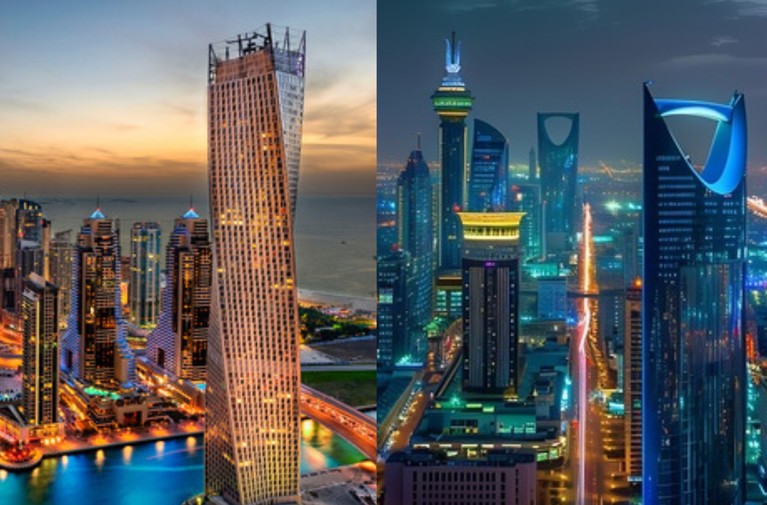Dubai or Riyadh? Middle East Relocation Options Broaden for Expats
For U.S. expatriates considering a move to the Middle East, Dubai and Riyadh stand out as premier destinations, each offering distinct advantages and challenges. Dubai’s cosmopolitan allure and established legal hub status are increasingly rivaled by Riyadh’s rapid economic growth and cultural transformation under Saudi Vision 2030. This article explores the legal, economic, and lifestyle factors influencing expat relocation decisions, drawing parallels with pricing strategies in other industries to highlight the importance of perceived value.
The Psychological Ceiling: Pricing Lessons from Fast Food
Much like fast-food chains maintaining prices below $10 to preserve consumer trust, Dubai and Riyadh compete to offer expats a sense of value through competitive salaries, tax benefits, and lifestyle perks. Just as transparent pricing avoids “sticker shock” in fast food, both cities emphasize clear visa processes and employment packages to attract professionals. However, navigating local regulations, such as Dubai’s mandatory health insurance laws or Riyadh’s sponsorship requirements, is critical to ensuring a smooth transition, mirroring the transparency demanded in U.S. consumer protection laws.
Dubai: The Established Legal and Lifestyle Hub
Dubai, with over 90% of its 3.79 million residents being expatriates, remains the Middle East’s leading hub for legal professionals, per Writer Relocations. Its high Quality of Urban Living Index ranking (24th globally) and reputation for safety make it a magnet for expats, particularly in law, where firms like A&O Shearman thrive on high-profile corporate transactions. The city’s tax-free salaries, averaging $70,000-$150,000 for legal professionals, and modern infrastructure attract U.S. expats, though high living costs—especially housing (12 months’ rent upfront)—pose challenges, per HSBC Expat. Legal requirements, such as mandatory health insurance under Dubai’s Health Insurance Law, and compliance with UAE labor laws add complexity but ensure robust protections.
Riyadh: A Rising Star with Economic Incentives
Riyadh, Saudi Arabia’s capital, is emerging as a formidable competitor, driven by Saudi Vision 2030’s push for economic diversification. With nearly half of its population being expatriates, the city offers lucrative salaries (average $74,000 in Riyadh, per Investments for Expats) and no income tax, making it 35% cheaper than Dubai, per Expat Arrivals. Legal opportunities in finance, technology, and energy are expanding, though most jobs still tie to oil and gas. However, strict Islamic laws and cultural conservatism, including gender segregation, require significant adjustment for U.S. expats, per JRM. Visa processes, governed by the Saudi Ministry of Foreign Affairs, mandate employer sponsorship, with restrictions on job changes, adding legal complexity.
Legal and Regulatory Considerations
Relocating to either city involves navigating distinct legal frameworks. In Dubai, the UAE’s flexible visa options, including Golden Visas for professionals, simplify entry, per EER Middle East. Conversely, Riyadh’s sponsorship-based Iqama system, requiring employer approval for job changes, can limit flexibility, per Holborn Assets. U.S. expats must comply with local labor laws, such as Saudi Arabia’s requirement for exit/re-entry permits, and ensure valid passports, per LSS Relocation. Recent U.S. legal trends, like Delaware’s Senate Bill 21 safe-harbor provisions, highlight the importance of clear regulatory frameworks, which both cities aim to provide to attract corporate and legal talent.
Lifestyle and Cost of Living
Dubai’s cosmopolitan lifestyle, with world-class dining and beach clubs, contrasts with Riyadh’s more conservative environment, where alcohol is banned, and social life often centers on expat compounds, per Expat Arrivals. Dubai’s high cost of living—comparable to London, per Cadogan Tate—is offset by faster promotions and diverse expat communities. Riyadh, while more affordable, faces challenges like erratic driving and limited public transport, though a new metro system is expected soon, per Expat.com. Both cities offer excellent healthcare, but Dubai’s metro and English-speaking environment make it easier to navigate, per HSBC Expat.
Career Opportunities and Talent Retention
For legal professionals, Dubai’s established market offers roles in corporate and antitrust law, as seen in A&O Shearman’s $3.7 billion revenue, driven by deals like Prosus’ €4.1 billion acquisition. Riyadh’s growing legal sector, fueled by diversification, attracts talent but requires cultural adaptation, per Law.com. Both cities face talent retention challenges, akin to U.S. law firms losing associates at a $1 million cost, per Law.com. Smarter resourcing, using AI tools like BigHand, could help firms in both cities optimize legal talent, mirroring strategies to retain Hanesbrands’ legal expertise post-Gildan’s $2.2 billion buyout.
Looking Ahead: Choosing the Right Fit
Dubai and Riyadh offer compelling options for U.S. expats, with Dubai’s liberal, high-cost environment suiting those seeking a cosmopolitan lifestyle, and Riyadh’s affordability and growth appealing to those open to cultural adaptation. Much like law firms balancing high billing rates with client demands, or fast-food chains maintaining sub-$10 prices, both cities must balance economic incentives with regulatory clarity to attract talent. U.S. expats must weigh legal requirements, career prospects, and lifestyle preferences to choose the destination that best aligns with their professional and personal goals.
